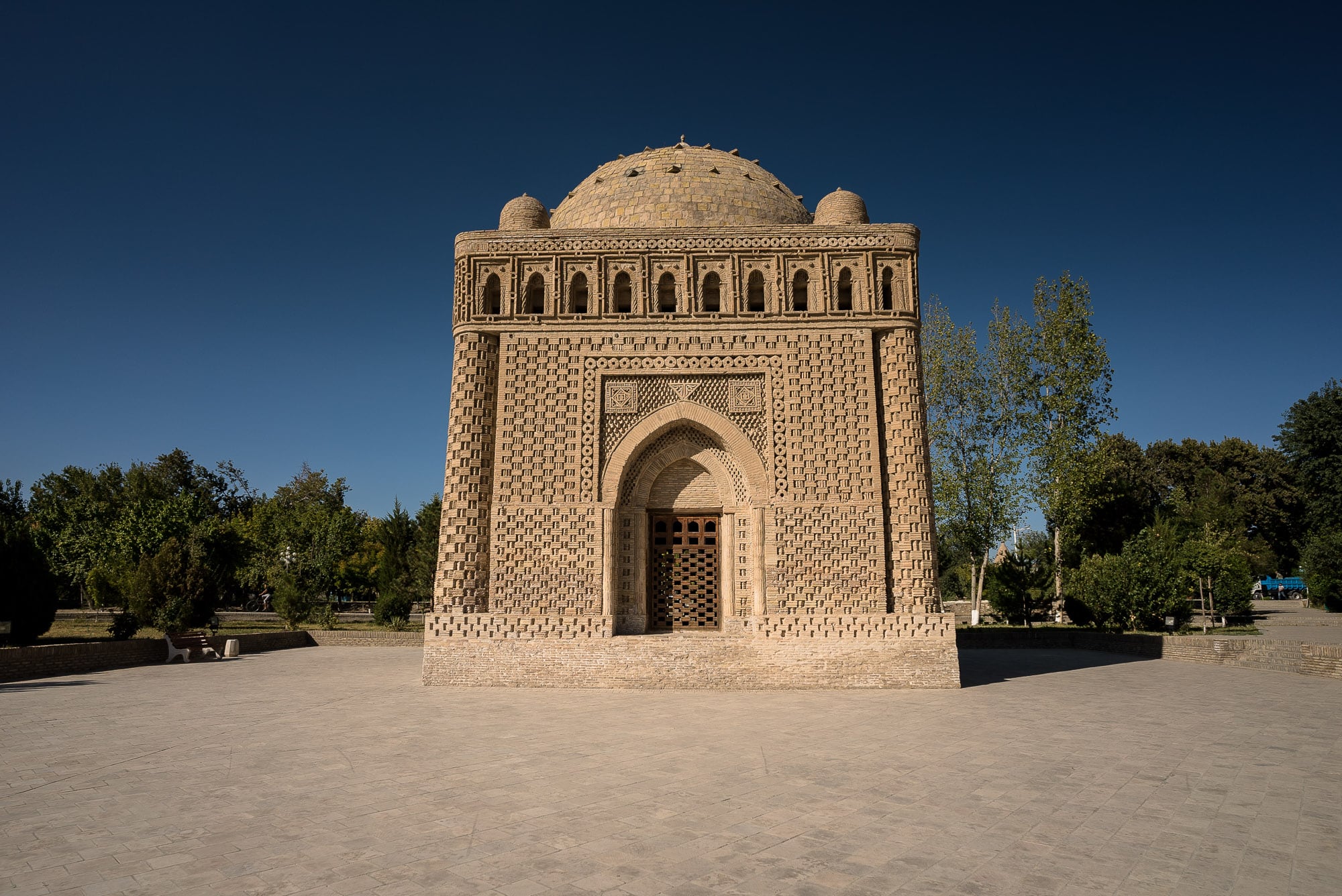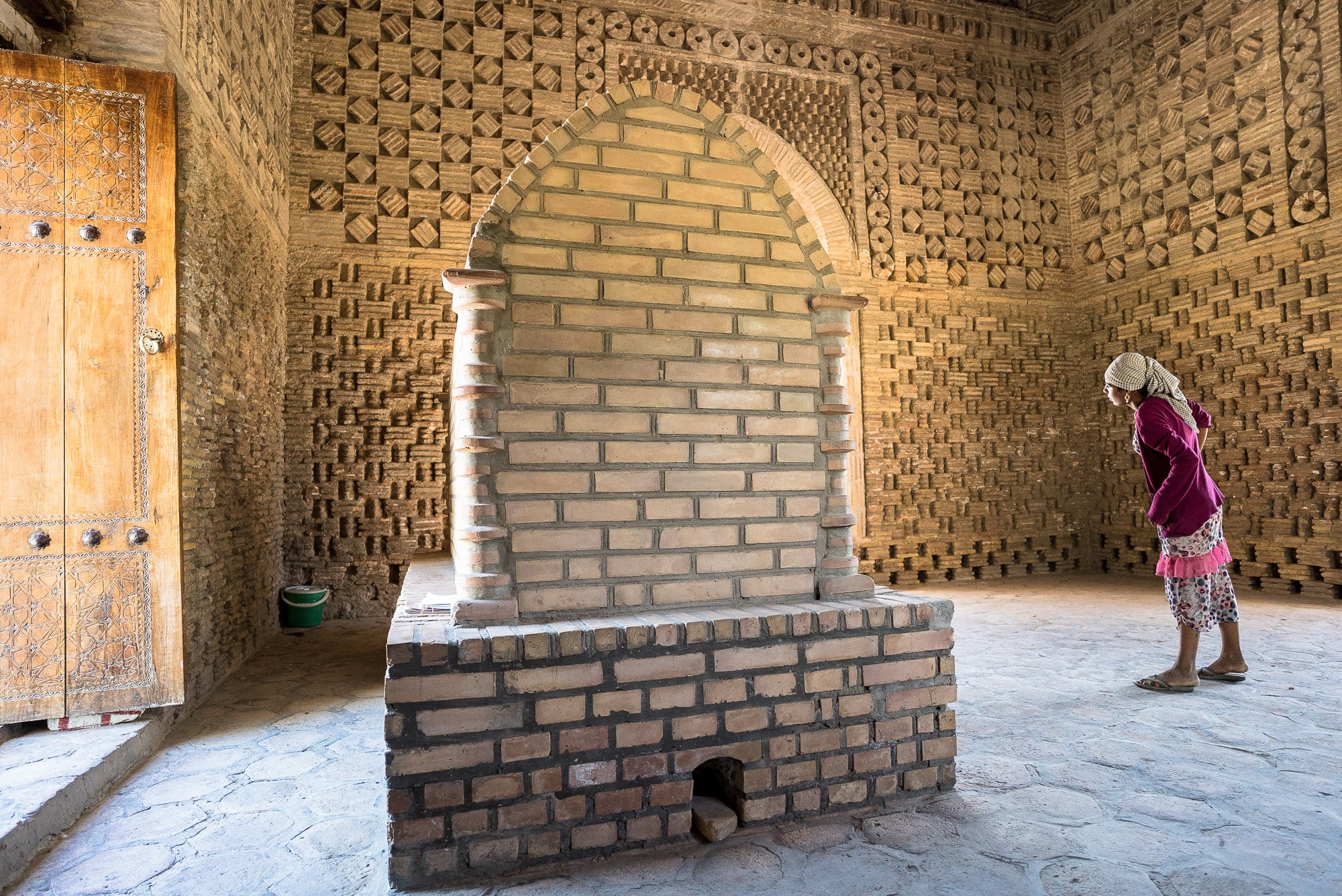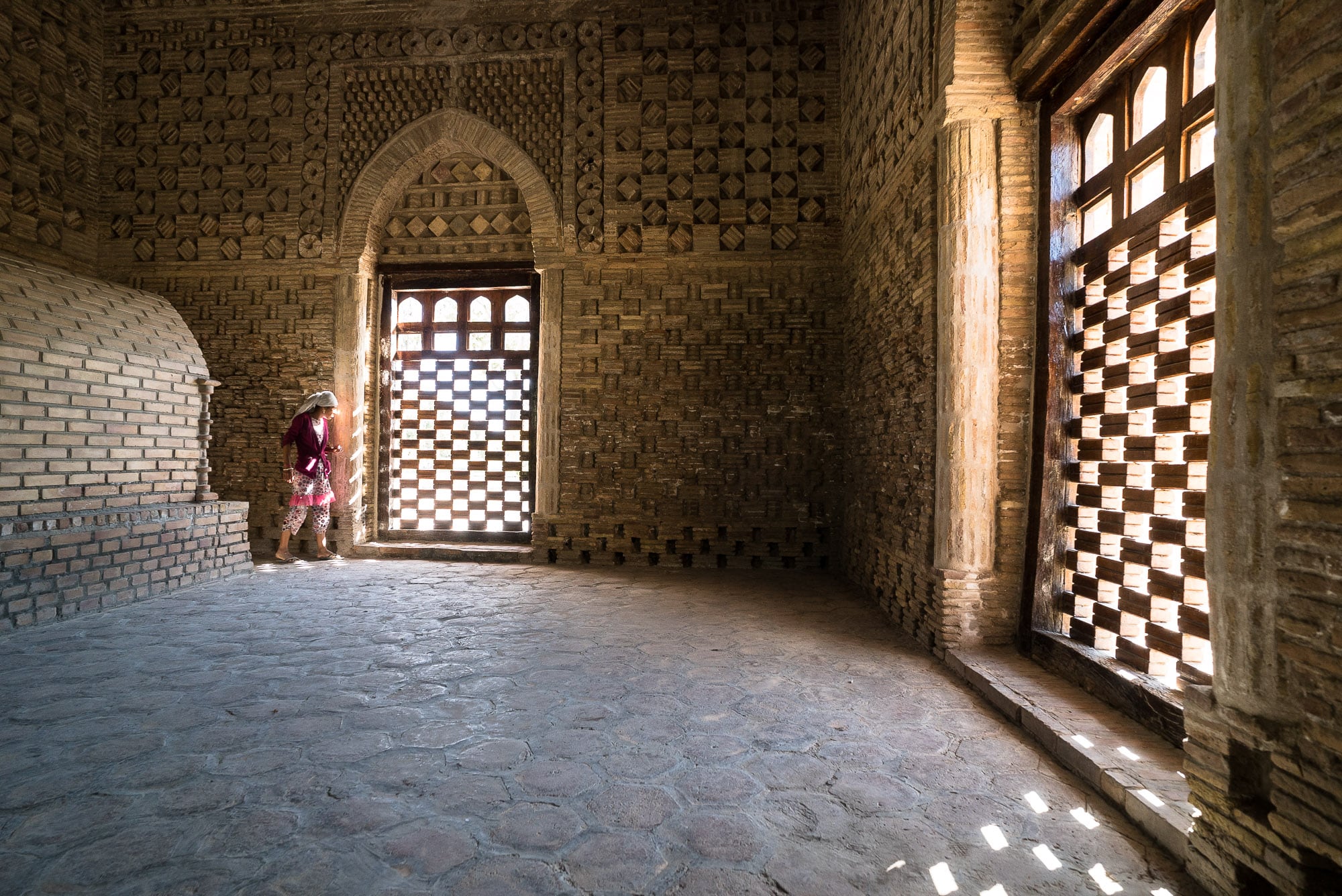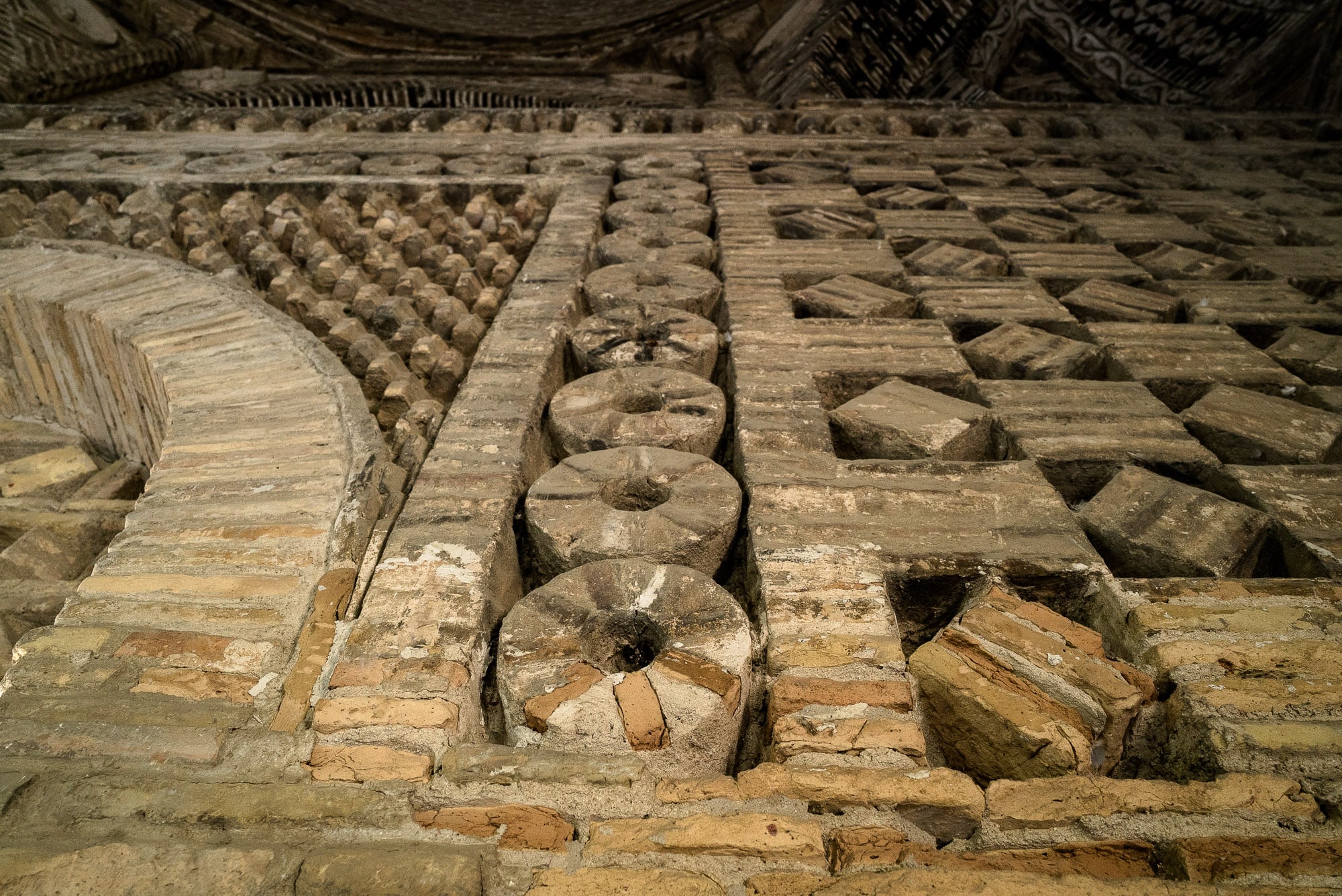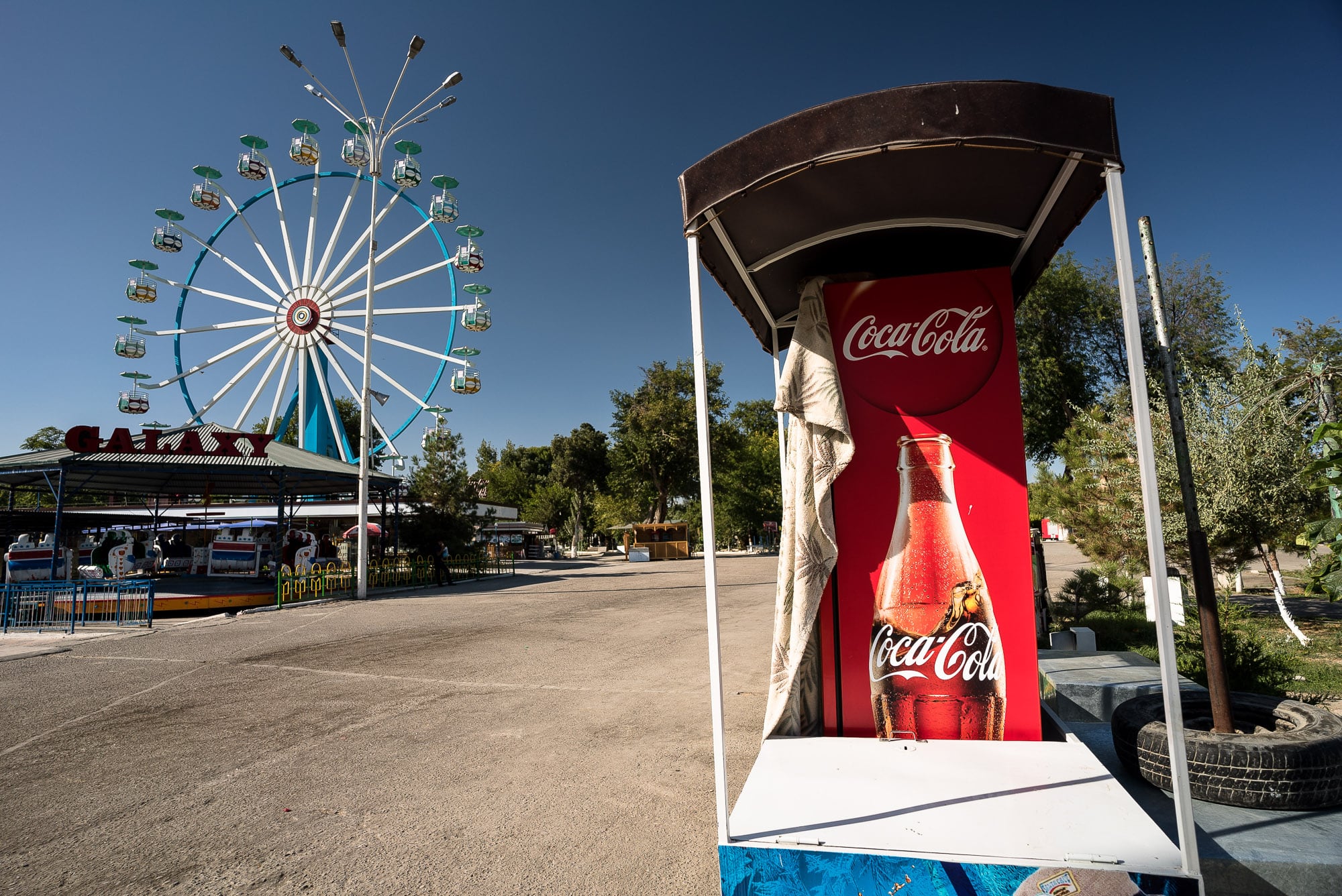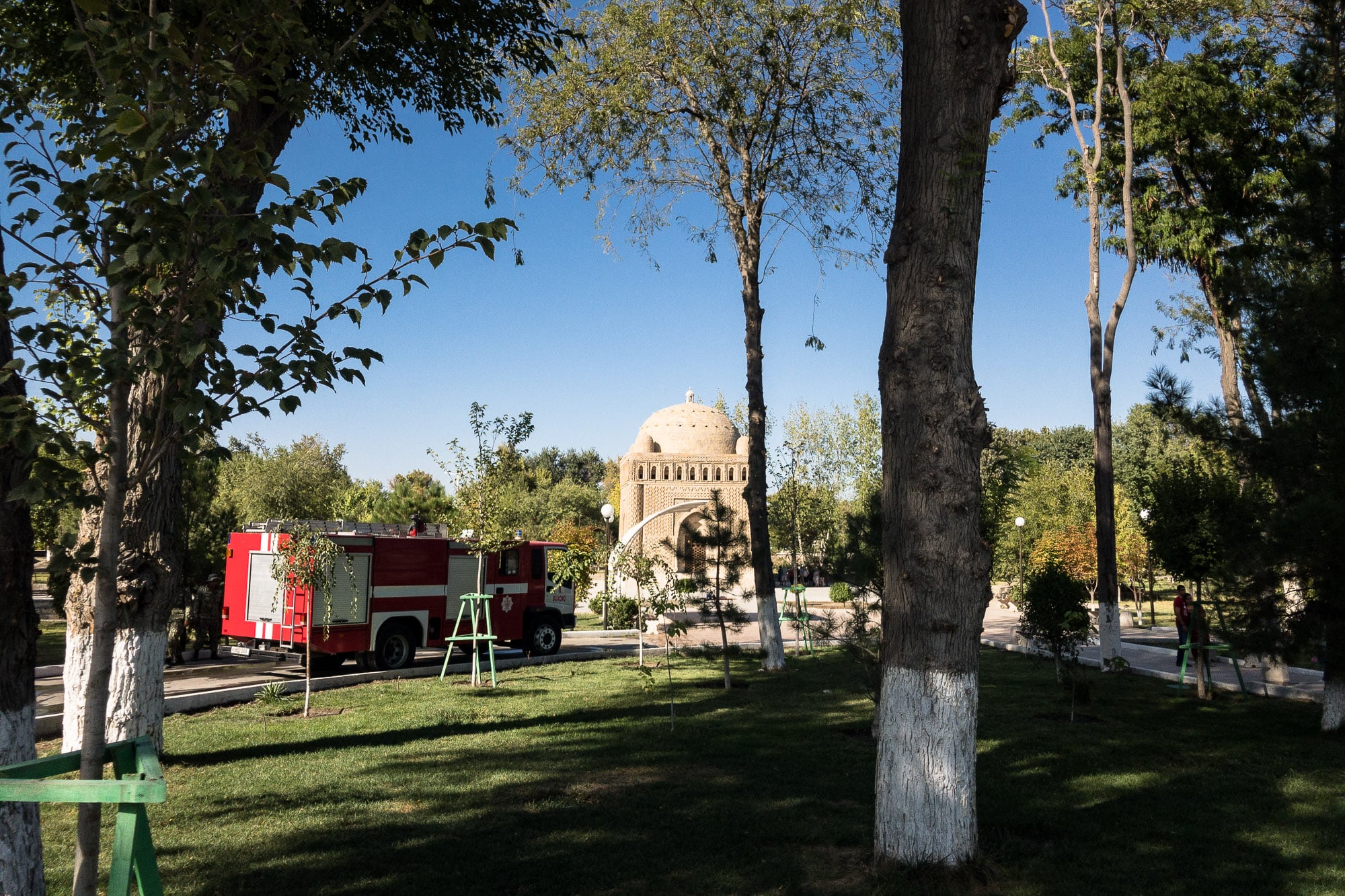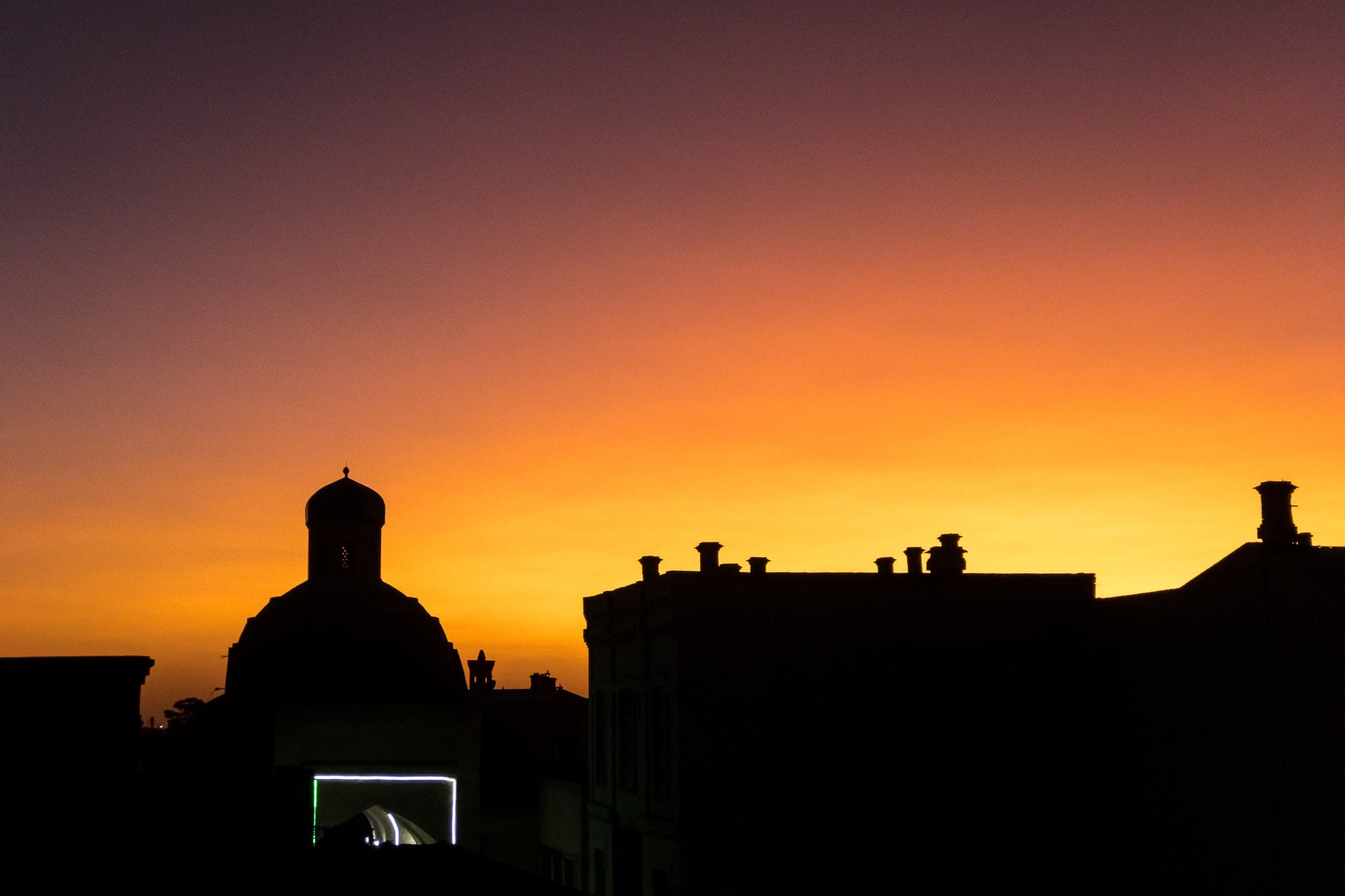under mud
The Caboose seemed to be in good shape, which meant that no repairs were necessary, which in turn meant that I had the day off. I decided to check out the 8th/9th century Samanid Mausoleum, one of the oldest monuments in Central Asia:
It had allegedly survived the Mongol invasion because it had been buried under mud during that time. It was hard to imagine where a flood that big was supposed to come from in an area as dry as this one, but I liked the story.
The building it self was rather simple compared to the grandeur of Timurid architecture:
But it was rich in ornaments:
Especially the ceiling:
Some of the ornaments looked like little suns, which could be hinting at a Zoroastrian legacy:
The mausoleum had once been part of a cemetery, but the Soviets had apparently bulldozed the graves and erected a large amusement park instead:
I found this a rather fitting image for Soviet rule: people were supposed to ride ferris wheels built in the dust of their dead:
Oh, and I saw a lot of military and fire trucks working in the park, which was apparently due to two reasons:
- The summer had been excessively hot, with temperatures surpassing 55° Celsius. This had left many trees suffering, and the government was trying to reverse these effects.
- Rumor had it that President Nazarbaev of Kazakhstan was coming to town, so everything was supposed to look neat and clean for him. This reminded me of what I had seen in Andijan two months earlier, so I thought it was very probable.
Then I took a walk in the back alleys of Bukhara, and I said good-bye to the city:
And Bukhara said good-bye back:
May her most beautiful buildings always be safe, and if only being buried under mud can make them safe, then let them be buried under mud.

